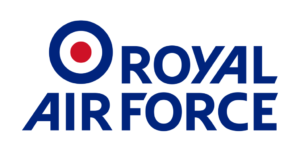How To Become A Supply Chain Manager
Can YOU organise goods moving from A to B around the UK and the world, so they're always where customers, suppliers and producers need them?
Supply Chain Manager Careers: What's Involved
Getting Into Supply Chain Management
Similar jobs: Logistics manager, distribution manager
Think of a Christmas paper chain. When one loop is broken, the whole thing falls apart. Now think of that chain as an endless flow of products moving between stores and warehouses. Firstly, it’s your job to oversee the whole chain to make sure a loop is never broken. Secondly, if a loop is broken, you’ll know just what to do to get the chain fixed again.
As a supply chain manager, you are responsible for all logistics (or the flows of product movement) coming in and out of your company. You’re the go-to for all imports and exports. It’s your job to make sure that not only have you got enough stock or goods ordered, but that they are then dispatched to their correct destinations. This job needs someone who is switched on and very organised. With training and experience, that person could be you.
What Does A Supply Chain Manager Do?
As the eyes and ears of all things logistical within the company, your role is extremely varied.
You’ll be planning delivery timetables, constantly monitoring your stock levels and assessing what you’ll need more of – and recording this all on the database for others to be informed. You’ll be tracking all goods going through depots and managing the arrival of shipments. A key part of your role will be looking at ways the overall supply chain can be improved, and implementing this. You’ll also be managing a team, which means you’ll be recruiting, training and supporting a team of supply chain staff.
There are a lot of specific details involved in this role, so you’ll need to very accurate ensuring the goods are ordered, stored and then dispatched to the customer.
How Much Money Can You Earn As a Supply Chain Manager?
These LMI Job Trends give you a sneak peek of how much you could earn starting out for this career, and how much your salary could grow with experience.
Average Salary For Supply Chain Manager Jobs
Recent labour market information says you can earn on average between £18,000 and £42,000 a year as a supply chain manager in the UK.
Starting salaries are quite broad in this career and can range from £18,000 through to £24,000.
With a few more years of experience this can then increase up to £35,000.
When you reach senior management level you could be earning up to £42,000 a year.
Your starting salary can vary because of factors like level of experience, training, or location. Your salary as a supply chain manager will increase over time as you build skills, knowledge and experience.
Skills You Need To Become A Supply Chain Manager
Useful Skills To Put On Your CV:
- self-management skills (being organised)
- leadership skills
- transport costs and methods knowhow
- knowledge of what’s involved in the manufacturing process
- communication and customer service skills
- teamwork skills to work well with others
- problem solving skills to deal with problems in a calm and logical way
- good basic digital skills to work with standard office software
How Do You Get These Skills?
Vocational qualifications and work experience will help you build these skills over time.
Build Your Skills With the FREE Young Professional ProgrammeWhat Qualifications & Training Do You Need For Supply Chain Careers?
School, College And Training
There are no formal qualifications that you need to become a supply chain manager. If you aim for at least five GCSEs or their equivalent in grades 9-4/A*-C including English and maths, you can apply to become a transport clerk or do an advanced apprenticeship, and work your way up.
If you decide to go straight into supply chain management, it will help to have a foundation BTEC, HND or degree in any of the following subjects:
- Supply chain management
- Logistics
- International transport
- Transport management
- Geography
Apprenticeships
Apprenticeship schemes are another way into a supply chain career. An apprenticeship is a way to get training and real-life experience while getting paid for it, and being given responsibility gradually, when you are ready for it. Your employer of choice may be advertising apprenticeships on their career websites, or it’s always worth checking the find an apprenticeship website, please follow this link.
You could start with a supply chain practitioner advanced apprenticeship, leading to a supply chain leadership or express delivery manager degree apprenticeship. You could also do a transport and warehouse operations supervisor advanced apprenticeship.
Entry requirements
You’ll typically need 4 or 5 GCSEs at grades 9 to 4 (A* to C) and A levels, or equivalent, for a higher or degree apprenticeship
Hot tip: Can you stand out from the crowd by adding more than one language to your CV? If your employer is international, it can help you get the job and get more opportunities to travel abroad in the role, too. Check Cilt UK for more information.
University And Degrees
The world of supply chain, transport and logistics is getting increasingly sophisticated. If you want to enter this world at a manager level, you’ll find that most companies would like managerial candidates educated to degree level. Here are some relevant subjects that would look good on your CV:
- Business
- Business with languages
- Computing
- Economics
- Geography
- Information systems
- Management
- Science
- Transport, distribution or logistics.
Many large organisations run graduate supply chain management schemes if that’s something you might be interested in looking into…
Postgraduate education is also an option, because Masters degrees in logistics and supply chain management are available. If this is something you’d like to start considering, why not look at The Chartered Institute of Logistics and Transport (CILT) UK? They can keep you up to date with the industry, and a student membership is also available.
Supply Chain Manager Career Path And Progression
If you start off with a supply chain or warehousing apprenticeship, with time and experience you progress to a permanent supply chain role, and explore a wide range of logistics management options.
What Work Experience Do You Need For Supply Chain Jobs?
Work Experience Tips
Gaining work experience is always helpful. Supply chain employers often include manufacturers, freight forwarders and large distribution companies.
Examples of relevant work experience include:
- Work shadowing (even if it’s just for a day)
- Work placements in a company
- Work placements on a degree course
Getting Experience
Why not put in the research now? It’s a good idea to contact your nearest employer and see if you can shadow anyone who is working there currently to gain some valuable insight into their daily tasks.
Get in touch with your potential employer via their early careers website or LinkedIn. Show them that you’re proactively looking for work experience and see if you can shadow someone, if not a team. This will help you pick up valuable skills you can apply within your career.
How To Find Supply Chain Jobs: Next Steps
To find jobs for young people in this role, search on jobs boards for early career roles with these words in the title:
- Supply Chain Apprenticeships
- Warehouse Operations Apprenticeships
- Warehouse Traineeships
- Graduate Supply Chain Jobs
- Supply Chain Graduate Schemes
- Supply Chain Degree Apprenticeships
These Youth Friendly Employers Offer Great Opportunities
These Youth-Friendly Employers might be able to help you get great fantastic supply chain jobs, training or experience! Take a look.
Logistics Career Tips & Opportunities
Transport and Logistics Career Guides
View job descriptions with average UK salary, useful qualifications and a variety of routes into this career.
Resources And Links
Find an Apprenticeship CILTUK Road To Logistics Business On The Move Talent In Logistics iCouldYES! I Want More Free Careers Help...
So what are you waiting for? Grab your future.




































